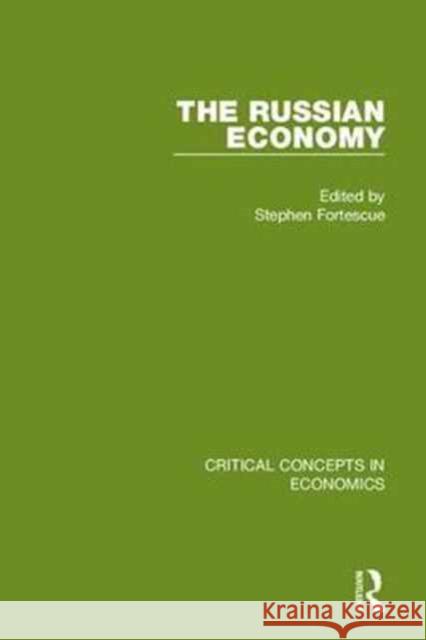The Russian Economy » książka
The Russian Economy
ISBN-13: 9781138961944 / Angielski / Twarda / 2017 / 1554 str.
As Russia aggressively tries to regain the status of a 'Great Power', whether it has the economic capacity to do so has become a matter of enormous topical importance, not just for those with a long-standing professional interest in the Russian economy, but also for a wider range of economists, political scientists, and foreign-policy specialists who need to understand the workings of this major--if somewhat unusual--state. Moreover, to determine if Russia can meet and sustain its apparent ambitions requires a knowledge not just of its current economic circumstances, but also of its economic past. What, if any, is the legacy of the Soviet period? How did Russia approach the transition from central planning to a market-type economy (a question which is relevant not just to our understanding of Russia itself, but also of transitional, emerging, and developing countries more generally)? And, leaving aside its Great Power ambitions, does the contemporary Russian economy possess the resources, structures, and policies to enable it to achieve and sustain even a viable society? As serious research on and around the Russian economy continues to blossom, this new title from Routledge's Critical Concepts in Economics series addresses these and other questions. In four volumes, the collection provides a much-needed compendium of foundational and the very best cutting-edge scholarship. It brings together the most informative and influential major works on the Soviet economy, Russia's early post-Soviet transition experiences, and its continuing economic successes and failures. The Russian Economy is fully indexed and has a comprehensive introduction, newly written by the editor, which places the collected material in its historical and intellectual context. It is an essential work of reference and is destined to be valued by scholars, students, and policymakers as a vital one-stop research and pedagogic resource.











